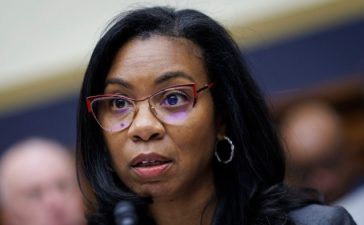
The Labour Party has asked for a trial in litigation over the leak of an internal report to be set back a year to avoid a ‘catastrophic’ clash with the general election.
A High Court costs case management hearing before Master Dagnall sought to issue directions to trial, expected to last nine days, and costs budgeting. The proceedings centre on a leaked internal report into antisemitism.
Anya Proops KC, for David Evans, as representative of the Labour Party in the litigation, said a trial in February 2025 would eliminate the risk of the case clashing with a general election which ‘would totally undermine our fair trial rights’.
She told the court the party was asking for a ‘modest delay…to avoid the risk of a clash with a general election’. She added: ‘There have been multiple complex onerous hearings just to get to the point of sitting for trial directions. Both sides are going to fight tooth and nail on every issue.
‘Having refocused our mind on the issue of trial directions, the timetable we agreed to over a year ago is simply too optimistic in an unworkable way.’
Proops added: ‘Our case is there was a conspiracy to leak the document. It should not have been publicly disclosed. That has always been the core issue in this case. The court will know only too well, conspiracy cases are complex, sensitive and particularly challenging for claimants to pursue. This is anything other than straightforward back-of-an-envelope litigation.’
The third parties in the case are seeking to keep the current timetable, with a trial listed for the end of summer 2024 or the beginning of the Michaelmas term.
Jacob Dean, for the third parties in the case, said: ‘It is surprising and concerning there has been no mention of amendments until this stage.’ He added: ‘There have already been very significant delays in the case for whatever reason. The claim was issued against the third parties in October 2021 and only now is it getting to budgeting and directions. The judge in charge of the list remarked one year into the claim “slow progress”.’
He said: ‘The claim against private individuals…has potential to be ruinous to those individuals both financially and reputationally’ and told the court a delay was prejudicial to his clients.
The court heard both parties are open to alternative dispute resolution hearings and had allowed time for ADR which, if successful, the judge pointed out would ‘involve saving an immense amount of legal costs’.
The hearing will continue later this year.











